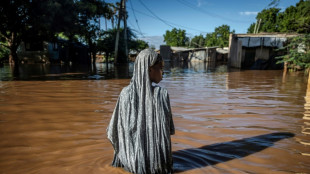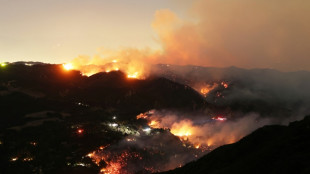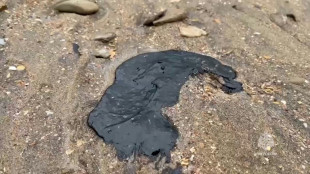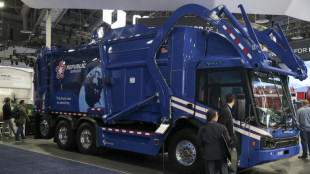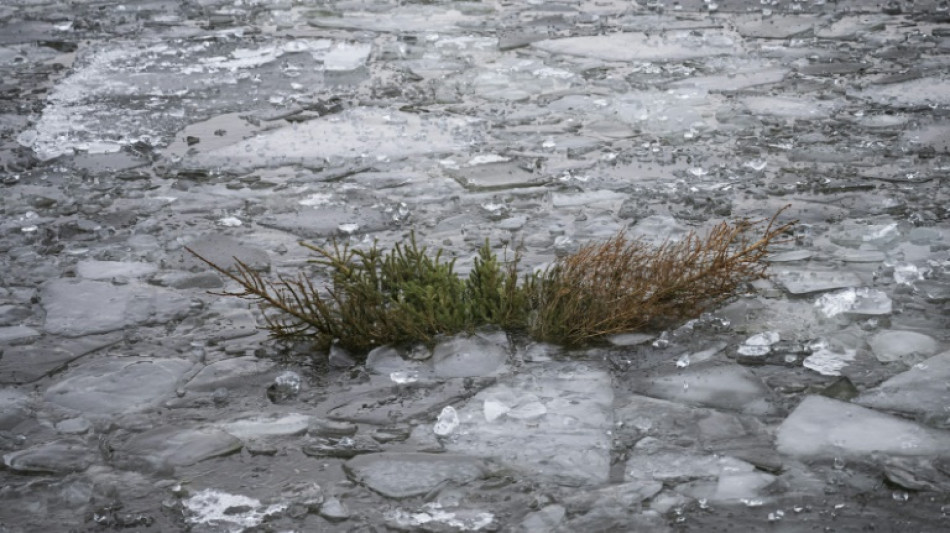

Discarded Christmas trees, a gift to Stockholm's fish
On a freezing January morning, dozens of discarded Christmas trees collected after the holidays are tossed into Stockholm's glacial waters, recycled to provide a welcoming habitat for marine life.
The initiative, started by national sport fishing association Sportfiskarna in 2016 to help restore the endangered ecosystem, has been hailed by environmentalists.
All the trees collected are from retailers who buy evergreens that have not been sprayed with pesticides.
Just days ago, the majestic Norway spruces held pride of place in cosy homes across Stockholm.
Now, the tinsel and ornaments are being replaced by heavy rocks before the trees are thrown off a boat into the waters off the Hammarby Sjostad industrial zone.
"Around here there's been a lot of construction, a lot of boats going in and out," Malin Kjellin, who heads the Sportfiskarna project, told AFP.
"There's not a lot of vegetation and these are really important habitats for fish to spawn that have disappeared," she says.
"It's really hard to get (the habitat) back naturally. This is a way of substituting what has been lost."
Since 2016, more than 1,000 trees collected after Christmas have been dropped in different spots.
Kjellin pulled up one about to be tossed overboard.
"If you look at it, there are plenty of places to hide in here. All these branches and needles.
"These are really great places to lay the roe and also for juvenile fish to hide from bigger ones," she explained.
- Fighting harmful algae -
Underwater videos of the submerged trees shot in past years show gelatinous clusters of fish larvae nestled in the branches.
"We have seen that it's really functioning," said an enthusiastic Yvonne Blomback of environmental group WWF.
"These fish are very important for the ecosystem in the Baltic Sea. They are part of a food chain which helps to keep the algae under control," she said.
"Over-fertilisation that benefits algae is a problem in the whole of the Baltic Sea, caused by spills from human activities, where farming is the largest source."
"Since the 19th century, many of the coastal wetlands have been turned into farmland.
"The wetlands close to the coast were very important habitats for the fish, so the fish have had huge problems to survive," Blomback said.
January 13 marks the official end of Christmas celebrations in Scandinavia and is traditionally a day when many throw out their trees.
"Here in Sweden, you give the Christmas tree a personality, you choose it very carefully, you take it in and you live with it," said Camilla Hallstrom, a 63-year-old Stockholmer throwing her small spruce away at a collection point for the recycling project.
"It's super to find environmentally friendly solutions to reuse it!"
The initiative has expanded to other Swedish regions.
"Hopefully more people will do it. People can do it on their own," suggested Malin.
E.Accardi--IM

